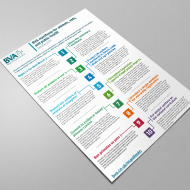BVA launches 10 pledges for general election manifesto

“We are at a critical time for animal health and welfare, and the future of our profession".
The British Veterinary Association (BVA) has published a list of 10 pledges for political parties to include in their manifestos for the upcoming general election.
The pledges, which include animal welfare, Brexit and the veterinary workforce, were unveiled at a private briefing for MPs and Peers in Westminster last month. The BVA has written to all major parties to ask them to adopt the pledges in their General Election manifestos
They are:
1 Reject a no-deal Brexit
2 Boost the veterinary workforce
3 Protect all animals in law
4 Protect UK welfare standards in future trade deals and agri policies
5 Protect the welfare of animals at slaughter
6 Strengthen legislation against illegal puppy imports
7 Commit to evidence-based disease control
8 Introduce a single database for microchip registration
9 Ban primates as pets
10 Put animal welfare on the national curriculum
BVA President Daniella Dos Santos said: “We are at a critical time for animal health and welfare, and the future of our profession. All major political parties recognise that animal welfare is a key issue for voters so it’s essential that they adopt sound, evidence-based policies in their manifestos.
“Our manifesto of 10 pledges draws together the most pressing topical issues that matter to our members. Unsurprisingly, Brexit has taken the top slot. BVA has not taken a position in favour of leave or remain, but our Council reviewed the evidence and concluded that a no-deal Brexit would have serious consequences for our workforce, and animal health and welfare.”
She continued: “We know there is cross-party support for many of the animal welfare measures in our manifesto, such as enshrining sentience in UK law, but we need to see a real commitment to action. We’re looking forward to engaging with all parties to put these policies into effect.
“During the campaign, we’re calling on election candidates to talk to vets in their local communities to better understand the veterinary workforce and welfare issues in our profession.”



 The Veterinary Medicines Directorate (VMD) is inviting applications from veterinary students to attend a one-week extramural studies (EMS) placement in July 2026.
The Veterinary Medicines Directorate (VMD) is inviting applications from veterinary students to attend a one-week extramural studies (EMS) placement in July 2026.